By Sarah Beth Costello
Click Here to view the full layout and design for this article

It was a regular Sunday morning in December. The lights were dimmed and all eyes were fixed on Pastor Tadd Grandstaff of Pine Ridge Church as he preached a sermon titled, “So You’re Dead…Now What?”
“I remember like it was yesterday, they had the neighborhood Vacation Bible School. I ate the cookie, I drank the Kool-Aid…” said Grandstaff as he recollected an emotional and pivotal childhood memory.
But there was one problem with Grandstaff’s message – it wasn’t original. In fact, the same message had been preached prior to Grandstaff’s by Lifechurch.tv’s pastor, Craig Groeschel. Groeschel provides sermons online for pastors and was the original mastermind behind the sermon series, “So You’re Dead…Now What?”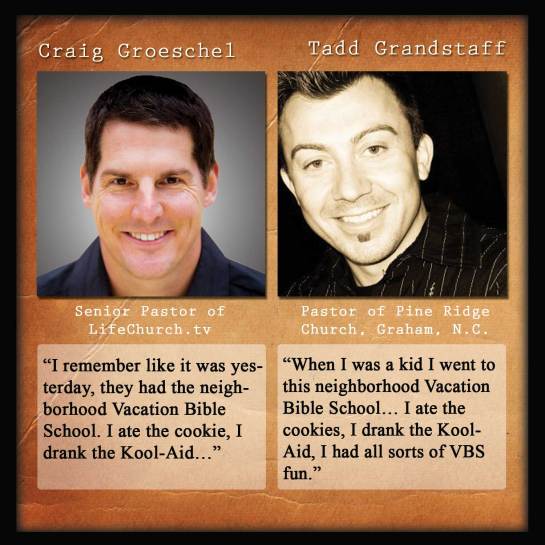
Groeschel kicked off his sermon with a familiar and almost coincidental story. “When I was a kid I went to this neighborhood Vacation Bible School…I ate the cookies, I drank the Kool-Aid, I had all sorts of VBS fun,” said Groeschel.
Groeschel had originally written the sermon series, and as intended, Grandstaff borrowed his concept. But Grandstaff took the message a step further and shared Groeschel’s personal stories as his own, while neglecting to attribute the source and failing to inform his congregation that the story he clearly “remembered” was not really etched in his memory.
Within the first couple of minutes of both sermons, the pastors told the exact same childhood story involving Vacation Bible School, Kool-Aid, cookies and a paranoia about death and hell.
This is an example of pulpit plagiarism, an issue that has been a discussed topic among Christians and church leaders. There are many conflicting opinions concerning what constitutes plagiarism and the ethics of sermon sharing. Some pastors have been confronted, others have been fired and still others refuse to acknowledge that some of their techniques may be a little unethical.
The Problems with Plagiarism in the Professional Workforce
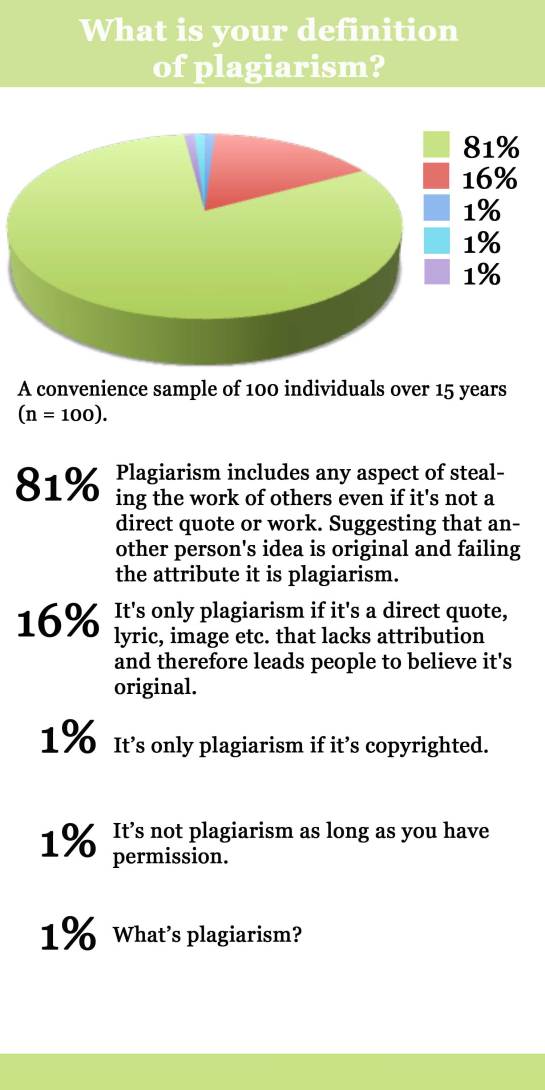 Plagiarism has always been an ethical issue in academia where students, faculty and staff are held to high standards in order to promote accuracy, fairness and integrity.
Plagiarism has always been an ethical issue in academia where students, faculty and staff are held to high standards in order to promote accuracy, fairness and integrity.
“Being in academia, our job is to come up with new ideas and to plagiarize is to steal from someone else rather than to be forward-thinking yourself. How can you teach when you don’t have any original ideas?” said Joeleen Kennedy who is a multimedia/graphic designer at Elon University in Elon, N.C.
Plagiarism is not only a bad habit among young college students, but it’s also increasingly becoming a problem in universities, among politicians, businessmen, lawyers, professors and pastors.
Southern Illinois University recently suffered embarrassment from their plagiarized plagiarism policy that was crafted by faculty at Indiana University.
“If it’s cited, it’s fine,” said Dean Pamela Freeman of Indiana University who helped co-write the original policy. “I think there’s a lot of confusion out there about plagiarism. I’m not sure there was any intent at [Southern Illinois]. I don’t think most universities mind if others use our ideas, they’re hard to write and it’s nice to share.”
The Growing Controversies in the Church
A career in ministry is challenging, busy and even discouraging at times. The responsibilities of a pastor entails much more than preaching messages on Sunday mornings. Ministry often requires long hours of study, visitations, counseling, missions, mediating disputes, volunteering, prayer, research and numerous other activities and duties.
Church members attend church for the purpose of edification and worship. There is dependence upon church leaders for guidance, wisdom and instruction. In this regard, a lot of pressure is placed upon authority figures. Balancing various responsibilities and writing a weekly sermon can be a stressful endeavor, which is one reason some pastors are resorting to other alternatives.
“When you have a pastor in a pulpit, without him saying anything, just by him walking up to the pulpit, there is an understanding of integrity and an understanding of honesty. And if he doesn’t say he is speaking someone else’s words then the assumption is that he’s not,” said Tony Rose, a staff member at Elon who has devoted significant time and research to plagiarism, apologetics and Christian studies.
Pastor Steven Furtick of Elevation Church in Charlotte, N.C., does not seem to have a problem with using other pastor’s sermons, according to his own blog post, “Steal the Stuff You Suck at.” In this short blog entry, Furtick discusses the benefits of sermon sharing, and explains his reasoning behind his practice of “ripping people off.”
“Tap the strengths of others to compensate for your weaknesses. This will allow you to play to your communicative strengths,” said Furtick.
While the actions of Grandstaff and Furtick appear to be inconsequential and acceptable, similar behaviors have resulted in the resignations of prominent pastors in recent years. In 2004, Reverend E. Glenn Wagner of Calvary Church in Charlotte, N.C. resigned after an admission that he had preached plagiarized sermons for the past two years. Wagner was the pastor of a mega-church and not only preached plagiarized sermons to a congregation, but also via Christian radio.
In 2002, Rector Edward Mullins from Christ Church Cranbrook in Missouri was suspended for 90 days while the Episcopal Diocese of Michigan investigated the allegations that Mullins had plagiarized several sources from the Internet.
“There’s two sides of plagiarism,” said Rose. “There’s the theft side where you’re stealing someone else’s work without permission, but there’s the other side of it where you’re dishonestly presenting that work as your own, and you’re deceiving the people.”
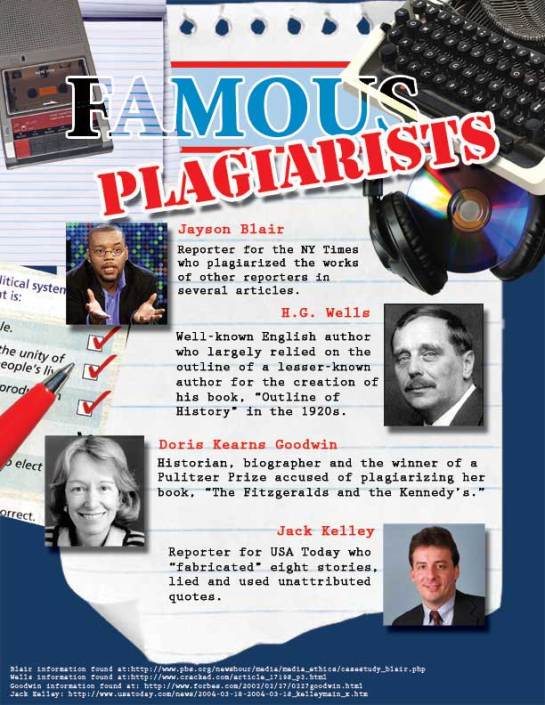
An Age-Old Battle of Ethics
Times are changing and truths that were once perceived as absolute are not absolutely distinguishable any longer. Plagiarism, an unethical practice that was once highly looked down upon with the utmost intolerance, is becoming more like a “guideline.” The definition and understanding of plagiarism is no longer understood in the same context and the attributes that once distinguished plagiarism as unethical and wrong have grown hazy.
The borrowing and sharing of original ideas has always existed in academia. Though presenting the works of others as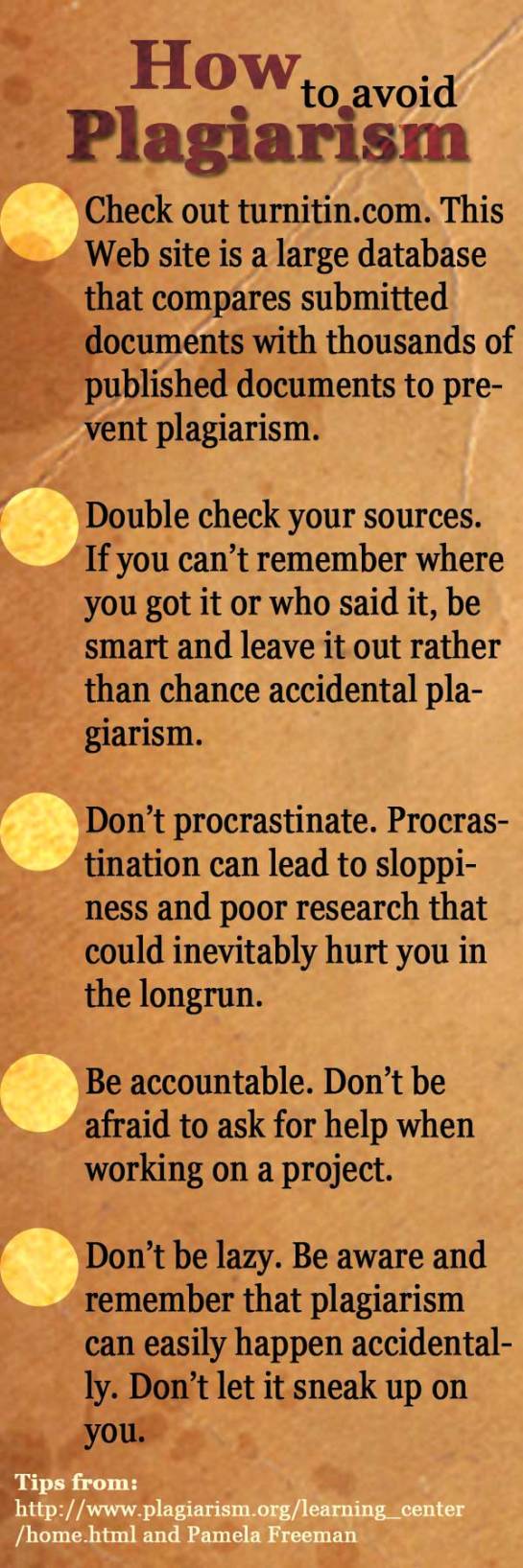 personal accomplishments was once considered a high form of flattery, plagiarism is an offense that can result in detrimental repercussions.
personal accomplishments was once considered a high form of flattery, plagiarism is an offense that can result in detrimental repercussions.
The term plagiarism is one that incites controversy and debate. Most academic institutions have honor codes clearly presenting what’s accepted and what’s unethical. But when it comes to speeches, sermons and the voicing of unoriginal ideas, the concept of plagiarism is not as concrete.
“Plagiarism occurs when someone knowingly represents words or ideas of another as if they were his or her own in order to gain some benefit, reward or credit,” said Dr. Teddi Fishman, Director of the Center for Academic Integrity at Clemson University. With the growing accessibility of the Internet, many are finding that plagiarism is becoming easier.
Before planting Pine Ridge Church in Graham, Grandstaff helped plant the Revolution Church in Georgia, which is led by Pastor Gary Lamb. Lamb and Grandstaff often share ideas and sermons. Both churches are starting a new series titled, “Rebel” Easter weekend.
Grandstaff meets with other pastors as well and shares sermon ideas, illustrations and even graphics. Often this group of pastors will give similar sermon series with the same titles. The question of ethics has been brought up in reference to lack of attribution. And specific plagiarism questions have been asked in regards to Grandstaff’s “personal” vacation Bible school story.
“I think, first of all, plagiarism is wrong. No doubt about it,” said Pastor John Cornette of Agape Baptist Church in Mebane, N.C. “When it’s taken from someone else, there would be a problem. I think it’s a very bad trend.”
Cornette says as a pastor he often uses commentaries and reference Bibles in his research and sermon preparations, but he’s always careful to properly attribute his sources and ensure that his message is original.
Plagiarism is not only an ethical choice, but also one that can negatively affect the growth and future of an individual. “I think there are two main reasons that plagiarism is detrimental. One, you’re not giving credit where credit is due. Two, when you take someone else’s ideas as your own you’re not taking the opportunity to come up with your own ideas,” said Whitney Gregory, Coordinator of Judicial Affairs at Elon University.
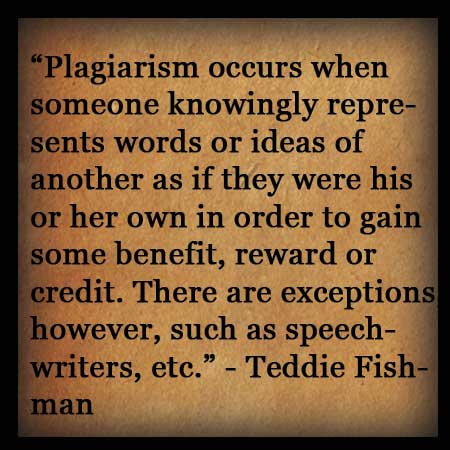 For some, sermon sharing is not as cut and dried. Most believe fabricating a personal story and intentionally misleading a congregation is always wrong, but many do not have a problem with pastors using the work of others as long as they are careful to site their sources.
For some, sermon sharing is not as cut and dried. Most believe fabricating a personal story and intentionally misleading a congregation is always wrong, but many do not have a problem with pastors using the work of others as long as they are careful to site their sources.
Dr. Toddie Peters, a religion professor at Elon University in Elon, N.C., elaborated the differences in expectations between scholarly writing and the presentation of speeches and sermons.
“If you tell a joke the assumption is your didn’t make up the joke,” said Peters, “There’s still an expectation of truth-telling, particularly in a sermon, particularly from a clergy person. So anything that even intimates at dishonesty…I would argue is a breach of trust.”
Toddie Peters Discusses the Importance of Accuracy and Truth-Telling:
Though Peters says more leniency is given to pastors and speech givers, she also believes that there should always be some recognition and attribution to inform the public that the information is not original.
Pulpit plagiarism is nothing new. “Pastors have done this for hundreds of years it’s just been harder to catch them doing it.” said Rose, “I think in a university setting, what you speak and what you write is looked at as intellectual property and so it is assumed that people will give credit. What I think is hideous is when it goes over into the church.”
Compare the two sermons: